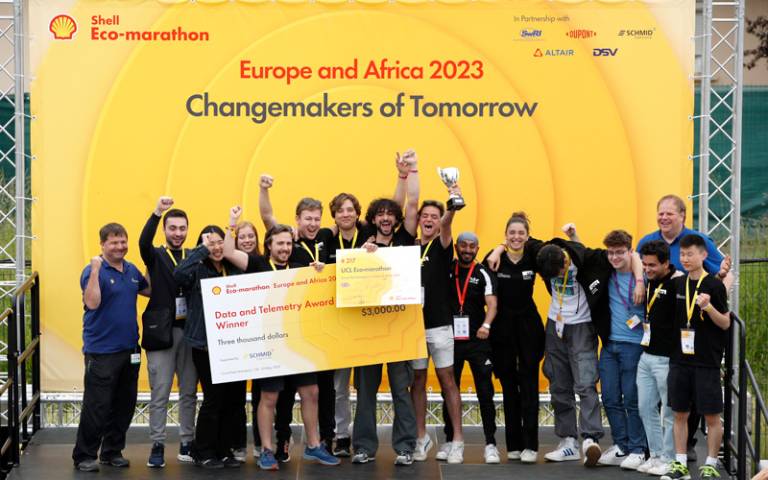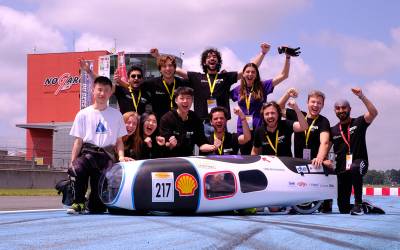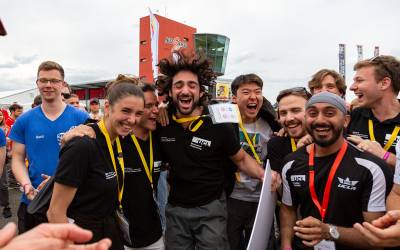Eco-Marathon Team wins Data and Telemetry prize at Shell Eco-Marathon Europe and Africa
5 June 2023
UCL Racing’s Eco-Marathon Team, comprised of undergraduate mechanical engineers from University College London, picked up the Data and Telemetry prize at this year’s Shell Eco-Marathon Europe and Africa.

UCL Racing’s Eco-Marathon Team, comprised of undergraduate mechanical engineers from University College London, picked up the Data and Telemetry prize at this year’s Shell Eco-Marathon Europe and Africa. The team, one of five UCL Racing teams, claimed the $3,000 prize from the Eco-Marathon podium in Nogaro, France for their impressive driving strategy model design.
Team Leader, third-year undergraduate George Stonor said,
"It was such an incredible experience to celebrate with the team after all of our hard work when we finished the race.
"It's the culmination of thousands of hours of work across many years to do this and we are so grateful for all the effort of previous team members and the staff that have supported us throughout this project, particularly Phil Sessions, Sandeep Harrar, Bill Backhouse and Tim Baker. We are really excited to push further, and we know we can come back even stronger next year."

The Eco-Marathon Team’s Report
The UCL Eco-Marathon team of undergraduate Mechanical Engineering students spent the last week at the Circuit Paul Armagnac in Nogaro in the South of France for the Shell Eco-marathon Europe and Africa. The UCL team of 13 was one of 108 teams in attendance, each competing to have the most efficient car. Vehicles belonged to one of three energy classes: internal combustion engine, hydrogen fuel cell or, as the UCL team was running, battery electric.
After passing technical inspection and getting some time in on the practice track, day four saw the competitive runs begin. Cars were set off one at a time and given a maximum of 38 minutes to complete 10 one-mile laps and would then be ranked by the energy consumed. UCL's first attempt did not go as planned with the car heading off track on one of the difficult hair pins and getting beached on the grass.
The next day, attempt two took place only for the car to finish just 23 seconds over the time limit allowed.
The final day offered two chances to get a run-in. The team were quick into the queue for the morning session and the third try was the charm as the car posted a valid time—the first time a UCL team has ever done so.
The afternoon saw a final run leaving the UCL team with a final efficiency value of 246 km/kWh. For reference, a Tesla Model S can achieve 5.4 km/kWh. This put the team 17th out of 26 vehicles in the battery electric class - a result the team are already working on improving on for next year. It was also the best result for a UK university at the Shell Eco-marathon. Greater success for the team resulted from their work off the track at the awards ceremony as they received the Shell Eco-Marathon Europe and Africa Data & Telemetry Award, with a $3,000 cash prize, for their development of a driving strategy model.

 Close
Close

